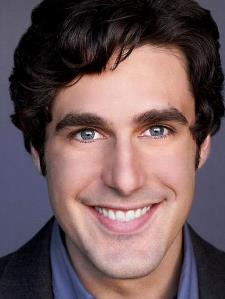
Max M. answered • 05/07/20
Harvard Literature major with 20 years of coaching writers
The simple answer to the simple part of your question--who was the first to interpret this scene in this way?--is I don't know. I'm not sure whether anyone knows for sure which critic or scholar first thought of or wrote down that idea.
But I am inclined to push back on the implication that it's a forced or shallow interpretation (which you don't say explicitly, but you do call it "a projection of biographically oriented readers who ignored or did not know about, etc. etc."). To be sure, there are many reasons to challenge the interpretation; I'm not for a moment suggesting that it's absolutely right or provable or any such thing.
But you might consider a few points:
1) There's no absolute agreement on when Shakespeare wrote which plays. Scholars tend to agree now that Henry VIII came after Tempest, but that's just a guess based on the best info currently available. Performance records and so on. As you probably know if you've read all those books, none of the plays was published until seven years after Shakespeare died (and if you believe Edward deVere wrote the plays, well, he died over ten years before Will Shakespeare of Stratford, so there's an even longer gap before publication, and even more time to explain between the writing of the plays and the first recorded performance. I don't believe it was deVere myself; I just bring it up to illustrate that we don't definitely know which play came first).
2) You're right that collaboration was common. In fact, new research suggests that many more of Shakespeare's plays were probably collaborations. Folger Shakespeare Library now lists All's Well That Ends Well as written by Shakespeare and Middleton for instance. Some think Middleton also wrote some of Macbeth. But the emphasis is on the word "new." For a long time, we thought Shakespeare wrote most of the plays solo, which would have made him a rarity in the Elizabethan theater. All the more reason, then, for him to make a big deal of his retirement. His last solo play would still represent a kind of retirement, even if he did another collaboration after.
3) Perhaps a small point, but people announce their retirement and then un-retire all the time. Athletes, actors, singers, CEOs, politicians. How many times did Michael Jordan retire, for instance? George Washington retired after the Revolution and was then called back, somewhat unwillingly, first to the Constitutional Convention, then to the Presidency itself. In other words, even if Henry VIII did come after Tempest, that doesn't mean that Shakespeare knew at the time that he would keep writing.
What I'm trying to convince you of here is not that the interpretation is right or wrong, but that it can't be dismissed so easily. It's a cliche, but writers put something of themselves into everything they write, and when characters share important traits with their authors, it makes sense to notice the parallels. Prospero is old and nearing the end of his life's work. The man who wrote him was too. Prospero's speech may not be literally Shakespeare's retirement announcement, but it's certainly valid to see how Shakespeare's own aged reflections might have influenced the way he wrote Prospero's.
As always with this kind of thing, the questions are much more interesting than the answers.




